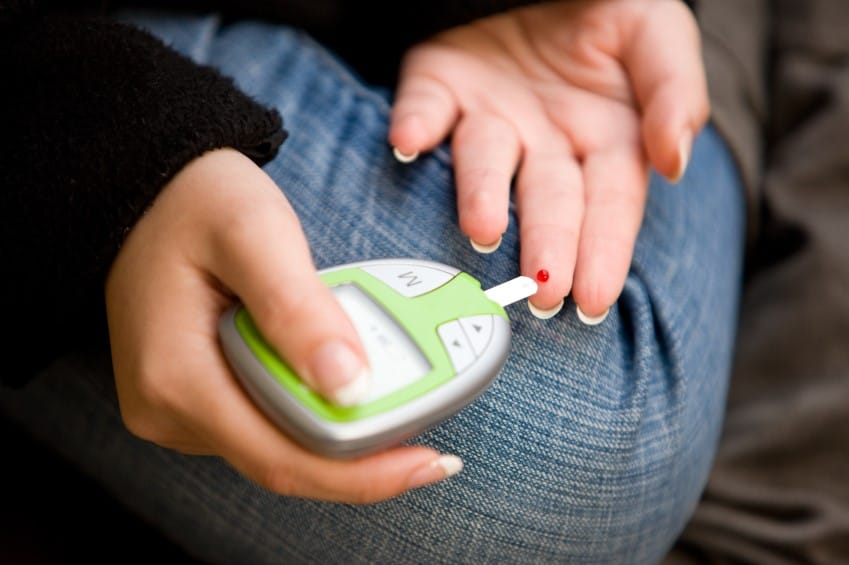Book Now
Cleveland Clinic Study Shows Bariatric Surgery Provides Long-Term Control of Type 2 Diabetes

Cleveland Clinic Study Shows Bariatric Surgery Provides Long-Term Control of Type 2 Diabetes

Bariatric Surgery Patients Report Better Quality Of Life
Monday, March 31, 2014
A study by Cleveland Clinic researchers shows bariatric surgery is a highly effective and durable treatment for type 2 diabetes in obese patients, enabling nearly all surgical patients to be free of insulin and many to be free of all diabetic medications three years after surgery.
The STAMPEDE (Surgical Therapy And Medications Potentially Eradicate Diabetes Efficiently) trial was simultaneously published in The New England Journal of Medicine and presented today at the Annual Scientific Session of the American College of Cardiology in Washington, D.C.
The study also shows that bariatric surgery patients experienced an improvement in quality of life and a reduction in the need for cardiovascular medications to control blood pressure and cholesterol compared to those receiving medical therapy. As a result, patients in the surgery groups used less cardiovascular and glucose-lowering medications – 5 to 10 percent were on insulin compared to 55 percent of the patients in the medical therapy group.
Obesity is the main trigger for type 2 diabetes. Given that an estimated one in every three adults in the United States is obese, health experts developed the term “diabesity” to talk about this epidemic. According to the American Diabetes Association, as many as one in three American adults will have diabetes in 2050 if present trends continue.
“We see patients whose lives are ravaged by diabetes. At the three-year mark, this study shows that bariatric surgery is more effective with persistent benefits noted up to 3 years for treating type 2 diabetes in moderate and severely obese patients when compared to medical therapy,” said Sangeeta Kashyap, M.D., one of the lead investigators and an endocrinologist at Cleveland Clinic’s Endocrinology & Metabolism Institute. “More than 90 percent of the patients who underwent bariatric surgery were able to lose 25 percent of their body weight and control their diabetes without the use of insulin and multiple diabetes drugs.”
To date, the STAMPEDE study is the largest randomized trial with one of the longest follow-ups comparing medical therapy with bariatric surgery. The trial initially involved 150 overweight patients with poorly controlled diabetes. The patients were divided into three groups: 1) Fifty patients received intensive medical therapy only, including counseling and medications; 2) Fifty patients underwent Roux-en-Y gastric bypass surgery and received medical therapy; 3) Fifty patients underwent sleeve gastrectomy and received medical therapy.
Effectiveness was gauged by the percentage of patients who achieved blood sugar control, defined in this study as hemoglobin HbA1c level of less than or equal to 6.0 percent – a more aggressive target than the American Diabetes Association’s guidelines. HbA1c is a standard laboratory test that reflects average blood sugar over three months.
At the three-year mark, more patients in the gastric bypass group (37.5 percent) achieved blood sugar control without the use of any diabetic medications compared with the other two groups — 5 percent of the patients in the medical therapy group and 24.5 percent of the patients in the sleeve gastrectomy group. This correlates with a weight loss five to six times greater on average for patients who underwent bariatric surgery compared with those in the intensive medical therapy group.
“The three-year data confirm that bariatric surgery maintains its superiority over medical therapy for the treatment of type 2 diabetes in severely obese patients,” said lead investigator Philip Schauer, M.D., Director of the Cleveland Clinic Bariatric and Metabolic Institute. “Moreover, data show that bariatric surgery is as effective in treating type 2 diabetes in patients with mild obesity. That’s why Cleveland Clinic health insurance plan now covers bariatric surgery for its members with mild obesity and uncontrolled diabetes.”
After three years, researchers were also able to evaluate the impact of diabetes and obesity on the patients’ quality of life using a validated questionnaire (SF-36, Rand Corp.). Data show significant improvements in five of eight mental and physical domains for patients in the gastric bypass group and two of eight domains for the patients in the sleeve gastrectomy group. There was no improvement in the medical therapy group.
“We looked at quality of life, because ultimately it is all about helping our patients live a healthier, happier life,” said Dr. Schauer. “When compared to sleeve gastrectomy and medical therapy, gastric bypass patients achieved greater weight loss, were on fewer medications, had a higher success rate in controlling their diabetes, and an improved quality of life.”
In addition, new data looked at kidney function, measured by the amount of albumin in the urine and a marker of kidney damage due to diabetes. Albumin level was significantly lower in the gastric bypass group only.
Cleveland Clinic researchers have been at the forefront of research in this field. In addition to leading the STAMPEDE trial, pioneering Cleveland Clinic-led research includes a study showing for the first time that bariatric surgery can markedly improve type 1 diabetes, with some patients reducing their insulin intake by more than 60 percent. The results were published in the March 2014 issue of Diabetes Care.
A substudy of STAMPEDE, published in Diabetes Care in 2013, found that gastric bypass surgery reverses diabetes by uniquely restoring pancreatic function in moderately obese patients with uncontrolled type 2 diabetes.
Further research is needed to continue to advance the study of bariatric surgery as a treatment option for patients with diabetes.
More information on the STAMPEDE clinical trial can be found at clevelandclinic.org/stampede.
The STAMPEDE study was funded by Ethicon, part of the Johnson & Johnson family of companies, through its Metabolic Applied Research Strategy (MARS) program. The NIH grant number is R01 DK089547.
Dr. Schauer is a paid consultant for Ethicon.
About Cleveland Clinic
Cleveland Clinic is a nonprofit multispecialty academic medical center that integrates clinical and hospital care with research and education. Located in Cleveland, Ohio, it was founded in 1921 by four renowned physicians with a vision of providing outstanding patient care based upon the principles of cooperation, compassion and innovation. Cleveland Clinic has pioneered many medical breakthroughs, including coronary artery bypass surgery and the first face transplant in the United States. U.S.News & World Report consistently names Cleveland Clinic as one of the nation’s best hospitals in its annual “America’s Best Hospitals” survey. More than 3,000 full-time salaried physicians and researchers and 11,000 nurses represent 120 medical specialties and subspecialties. The Cleveland Clinic health system includes a main campus near downtown Cleveland, eight community hospitals, more than 75 Northern Ohio outpatient locations, including 16 full-service Family Health Centers, Cleveland Clinic Florida, the Lou Ruvo Center for Brain Health in Las Vegas, Cleveland Clinic Canada, and, currently under construction, Cleveland Clinic Abu Dhabi. In 2012, there were 5.1 million outpatient visits throughout the Cleveland Clinic health system and 157,000 hospital admissions. Patients came for treatment from every state and from more than 130 countries.










